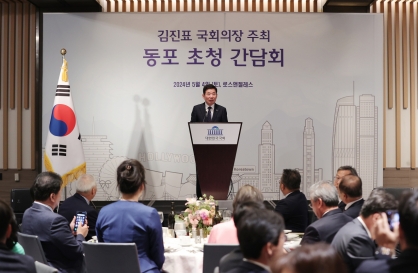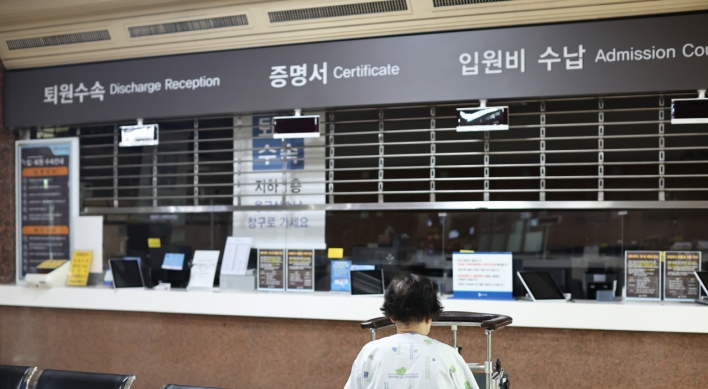When it comes to great American music, the Second City might as well be called the Seventh City.
Chicago has a thriving music scene with scores of jazz, blues, folk and rock clubs. But Nashville, Memphis, New Orleans, Austin, Detroit, and even Kansas City, Mo., seem to have embraced their music heritage more successfully than Chicago has through cultural programming, historical districts and ambitious promotion.
“Music City USA”? Nashville claimed that title in the 1950s, for good reasons. But as much as we love the Grand Ole Opry ― and Motown, Dixieland, the Delta Blues and K.C. jazz ― the music crown should belong in the toddlin’ town, once the home of Benny Goodman and Earl “Fatha” Hines and Jelly Roll Morton and Muddy Waters and Junior Wells and Steve Goodman and John Prine and … well, you get the idea. We’ve had it all and should celebrate that.
So we want to support Ald. Bob Fioretti’s efforts to revitalize a small stretch of South Michigan Avenue known as “Motor Row” into an entertainment district commemorating the great music history that rose up alongside the auto showrooms of yesteryear.
The alderman of the 2nd Ward is enthusiastic about the opportunity to create a commercial area that would link McCormick Place, Bronzeville, Chinatown and the South Loop ― to fill in the “blank space,” as he calls it, and connect the region to downtown with hotels, restaurants and music clubs. Some have suggested renaming the area “Music Row” or reviving the “Record Row” nickname for the strip where Vee-Jay, Brunswick, Chess Records and Constellation Records (among others) once sat.
Fioretti has achieved the first step, with passage of a zoning change that would prevent further residential development ― and promote more commercial development ― in the Motor Row district, which sits on the three blocks of South Michigan Avenue between Cermak Road and the Stevenson Expressway. Three of the 55 buildings along Motor Row were granted landmark status a decade ago, and the famed Chess Records studio, now home to the Willie Dixon Blues Heaven Foundation and a museum, is just outside the rezoned area.
The next step is murkier, as Fioretti acknowledges his vision is “helter-skelter” and he needs city support to realize any ambitious plans. Still, he believes it’s the right time to dive in.
“You can see the interest,” he said. “We have to think broadly. And we’ll need the mayor’s office involved or it can’t happen.”
That would be Mayor Rahm Emanuel, who has Koko Taylor and Buddy Guy on his iPod.
Interest in this idea has been high for years among a small but devoted section of the music community. Members of Cheap Trick have expressed interest in buying property there, Fioretti said. That would be a tremendous boost to any development effort. A commitment from Emanuel will be essential. But the most crucial need at this point is a better developed plan for how this entertainment district will function.
Fioretti says his biggest need is a point person from the planning sector with experience in obtaining and managing state, federal and local funding. No one wants a repeat of the troubled, $19.5 million Harold Washington Cultural Center in Bronzeville ― an underutilized performance space that was intended to support a blues district on 47th Street. The pet project of former Ald. Dorothy Tillman has run into financial trouble.
Fioretti needs a solid planner, and he should also look for a solid musicologist. If the final plan doesn’t emphasize Chicago’s music heritage, this proposed commercial district could turn into a Disneyfied strip of music-themed bars and restaurants with less cultural significance than the Blues Brothers statue at Midway Airport. Fioretti would do well to assemble historians and music industry leaders so the city can create a sustainable tourist destination that respects the deep history of Motor Row and Record Row.
A strong commercial district with historic credibility would do exactly what Fioretti hopes. It would link Chinatown, Bronzeville, McCormick Place and the South Loop. It would give conventioneers a place within walking distance to eat, drink and shop. And it would breathe new life into the long-vacant auto showrooms so perfectly suited to become small music venues.
(Editorial, Chicago Tribune)
Chicago has a thriving music scene with scores of jazz, blues, folk and rock clubs. But Nashville, Memphis, New Orleans, Austin, Detroit, and even Kansas City, Mo., seem to have embraced their music heritage more successfully than Chicago has through cultural programming, historical districts and ambitious promotion.
“Music City USA”? Nashville claimed that title in the 1950s, for good reasons. But as much as we love the Grand Ole Opry ― and Motown, Dixieland, the Delta Blues and K.C. jazz ― the music crown should belong in the toddlin’ town, once the home of Benny Goodman and Earl “Fatha” Hines and Jelly Roll Morton and Muddy Waters and Junior Wells and Steve Goodman and John Prine and … well, you get the idea. We’ve had it all and should celebrate that.
So we want to support Ald. Bob Fioretti’s efforts to revitalize a small stretch of South Michigan Avenue known as “Motor Row” into an entertainment district commemorating the great music history that rose up alongside the auto showrooms of yesteryear.
The alderman of the 2nd Ward is enthusiastic about the opportunity to create a commercial area that would link McCormick Place, Bronzeville, Chinatown and the South Loop ― to fill in the “blank space,” as he calls it, and connect the region to downtown with hotels, restaurants and music clubs. Some have suggested renaming the area “Music Row” or reviving the “Record Row” nickname for the strip where Vee-Jay, Brunswick, Chess Records and Constellation Records (among others) once sat.
Fioretti has achieved the first step, with passage of a zoning change that would prevent further residential development ― and promote more commercial development ― in the Motor Row district, which sits on the three blocks of South Michigan Avenue between Cermak Road and the Stevenson Expressway. Three of the 55 buildings along Motor Row were granted landmark status a decade ago, and the famed Chess Records studio, now home to the Willie Dixon Blues Heaven Foundation and a museum, is just outside the rezoned area.
The next step is murkier, as Fioretti acknowledges his vision is “helter-skelter” and he needs city support to realize any ambitious plans. Still, he believes it’s the right time to dive in.
“You can see the interest,” he said. “We have to think broadly. And we’ll need the mayor’s office involved or it can’t happen.”
That would be Mayor Rahm Emanuel, who has Koko Taylor and Buddy Guy on his iPod.
Interest in this idea has been high for years among a small but devoted section of the music community. Members of Cheap Trick have expressed interest in buying property there, Fioretti said. That would be a tremendous boost to any development effort. A commitment from Emanuel will be essential. But the most crucial need at this point is a better developed plan for how this entertainment district will function.
Fioretti says his biggest need is a point person from the planning sector with experience in obtaining and managing state, federal and local funding. No one wants a repeat of the troubled, $19.5 million Harold Washington Cultural Center in Bronzeville ― an underutilized performance space that was intended to support a blues district on 47th Street. The pet project of former Ald. Dorothy Tillman has run into financial trouble.
Fioretti needs a solid planner, and he should also look for a solid musicologist. If the final plan doesn’t emphasize Chicago’s music heritage, this proposed commercial district could turn into a Disneyfied strip of music-themed bars and restaurants with less cultural significance than the Blues Brothers statue at Midway Airport. Fioretti would do well to assemble historians and music industry leaders so the city can create a sustainable tourist destination that respects the deep history of Motor Row and Record Row.
A strong commercial district with historic credibility would do exactly what Fioretti hopes. It would link Chinatown, Bronzeville, McCormick Place and the South Loop. It would give conventioneers a place within walking distance to eat, drink and shop. And it would breathe new life into the long-vacant auto showrooms so perfectly suited to become small music venues.
(Editorial, Chicago Tribune)




![[AtoZ Korean Mind] Does your job define who you are? Should it?](http://res.heraldm.com/phpwas/restmb_idxmake.php?idx=644&simg=/content/image/2024/05/06/20240506050099_0.jpg&u=)













